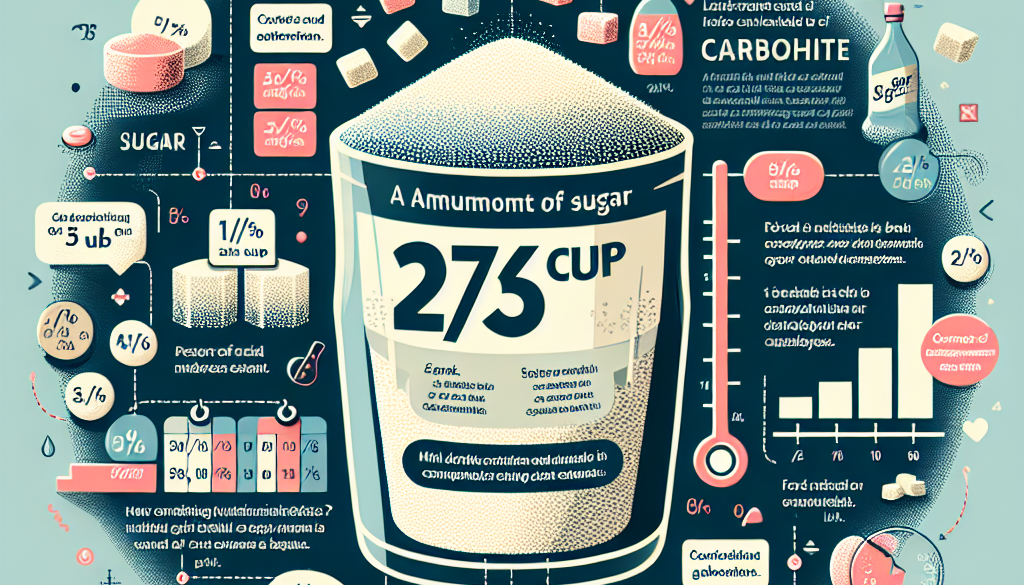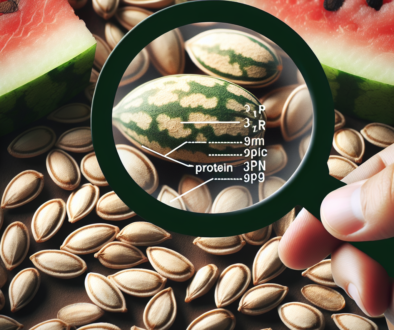2/3 Cup Sugar Carbs: Sweet Facts
-
Table of Contents
- 2/3 Cup Sugar Carbs: Unveiling the Sweet Facts
- Understanding Carbohydrates in Sugar
- The Carb Content of 2/3 Cup of Sugar
- Health Implications of Sugar Consumption
- Recommended Daily Intake of Sugar
- Comparing Sugar to Alternative Sweeteners
- Natural vs. Artificial Sweeteners
- Sugar’s Role in the Modern Diet
- Hidden Sugars and Label Reading
- Conclusion: Balancing Sweetness and Health
- Discover ETprotein’s Protein Products
2/3 Cup Sugar Carbs: Unveiling the Sweet Facts

When it comes to understanding the nutritional content of our food, sugar is often a primary focus, especially for those monitoring their carbohydrate intake. In this article, we’ll delve into the sweet facts about the carbohydrates present in 2/3 cup of sugar, exploring its impact on health, its role in the diet, and how it compares to alternative sweeteners. We’ll also touch on the broader implications of sugar consumption in our daily lives.
Understanding Carbohydrates in Sugar
Carbohydrates are one of the three macronutrients essential to human health, alongside fats and proteins. They are the body’s primary source of energy, and sugars are the simplest form of carbohydrates. When we talk about 2/3 cup of sugar, we’re referring to a specific quantity of this simple carbohydrate that is commonly used in baking and cooking.
The Carb Content of 2/3 Cup of Sugar
To understand the carbohydrate content of 2/3 cup of sugar, we must first look at the type of sugar being used. The most common type of sugar used in households and in cooking is granulated white sugar, which is pure sucrose. A single teaspoon of granulated sugar contains about 4 grams of carbohydrates. Therefore, 2/3 cup of sugar, which is equivalent to approximately 10.67 tablespoons or 32 teaspoons, contains around 128 grams of carbohydrates.
Health Implications of Sugar Consumption
While sugar is a source of quick energy, its consumption has been linked to various health issues when ingested in large amounts. Excessive sugar intake can lead to weight gain, obesity, type 2 diabetes, heart disease, and dental problems. It’s important to understand the role that sugar plays in our diet and the potential risks associated with its overconsumption.
Recommended Daily Intake of Sugar
The American Heart Association (AHA) recommends that women should consume no more than 6 teaspoons (25 grams) of added sugar per day, and men should limit their intake to 9 teaspoons (38 grams). When considering that 2/3 cup of sugar contains 128 grams of carbohydrates, it’s clear that this amount far exceeds the daily recommended limit for both men and women if consumed in one sitting.
Comparing Sugar to Alternative Sweeteners
With growing health concerns over sugar consumption, many people are turning to alternative sweeteners. These can range from natural options like honey and maple syrup to artificial sweeteners like aspartame and sucralose. Each of these alternatives has its own nutritional profile and impact on health.
Natural vs. Artificial Sweeteners
Natural sweeteners often contain additional nutrients and can have a lower glycemic index than white sugar, potentially causing a less dramatic spike in blood sugar levels. However, they still contribute to overall carbohydrate intake and should be consumed in moderation.
Artificial sweeteners, on the other hand, are typically calorie-free and do not contribute to carbohydrate intake. They can be useful for those managing diabetes or trying to reduce calorie consumption. However, there is ongoing debate about their long-term health effects, and they may not satisfy the craving for sweetness in the same way that sugar does.
Sugar’s Role in the Modern Diet
Sugar is not only present in obvious sweet treats like candies and desserts but is also hidden in many processed foods, including bread, sauces, and beverages. This widespread presence makes it easy to consume sugar in excess without even realizing it.
Hidden Sugars and Label Reading
One of the key strategies for managing sugar intake is becoming adept at reading food labels. Sugar can appear under various names, including high fructose corn syrup, cane sugar, agave nectar, and more. By understanding these terms, consumers can make more informed choices about the foods they eat.
Conclusion: Balancing Sweetness and Health
In conclusion, while 2/3 cup of sugar provides a substantial amount of carbohydrates, it’s essential to consider this within the context of an entire diet. Moderation is key, and for those looking to reduce their sugar intake, there are various alternative sweeteners available. However, it’s crucial to remain aware of the health implications associated with all types of sweeteners and to strive for a balanced and nutritious diet.
Discover ETprotein’s Protein Products
For those seeking to balance their carbohydrate intake with high-quality protein sources, ETprotein offers a range of plant-based protein products. These proteins can be a valuable addition to any diet, particularly for individuals looking to enhance their fitness regimen, manage weight, or simply improve their overall nutritional intake.
About ETprotein:
ETprotein, a reputable watermelon seed protein Chinese factory manufacturer and supplier, is renowned for producing, stocking, exporting, and delivering the highest quality organic bulk vegan protein and plant proteins. They include Organic rice protein, clear rice protein, pea protein, clear pea protein, watermelon seed protein, pumpkin seed protein, sunflower seed protein, mung bean protein, peanut protein etc. Their offerings, characterized by a neutral taste, non-GMO, allergen-free attributes, cater to a diverse range of industries. They serve nutraceutical, pharmaceutical, cosmeceutical, veterinary, as well as food and beverage finished product distributors, traders, and manufacturers across Europe, USA, Canada, Australia, Thailand, Japan, Korea, Brazil, and Chile, among others.
ETprotein specialization includes exporting and delivering tailor-made protein powder and finished nutritional supplements. Their extensive product range covers sectors like Food and Beverage, Sports Nutrition, Weight Management, Dietary Supplements, Health and Wellness Products, and Infant Formula, ensuring comprehensive solutions to meet all your protein needs.
As a trusted company by leading global food and beverage brands and Fortune 500 companies, ETprotein reinforces China’s reputation in the global arena. For more information or to sample their products, please contact them and email sales(at)ETprotein.com today.












